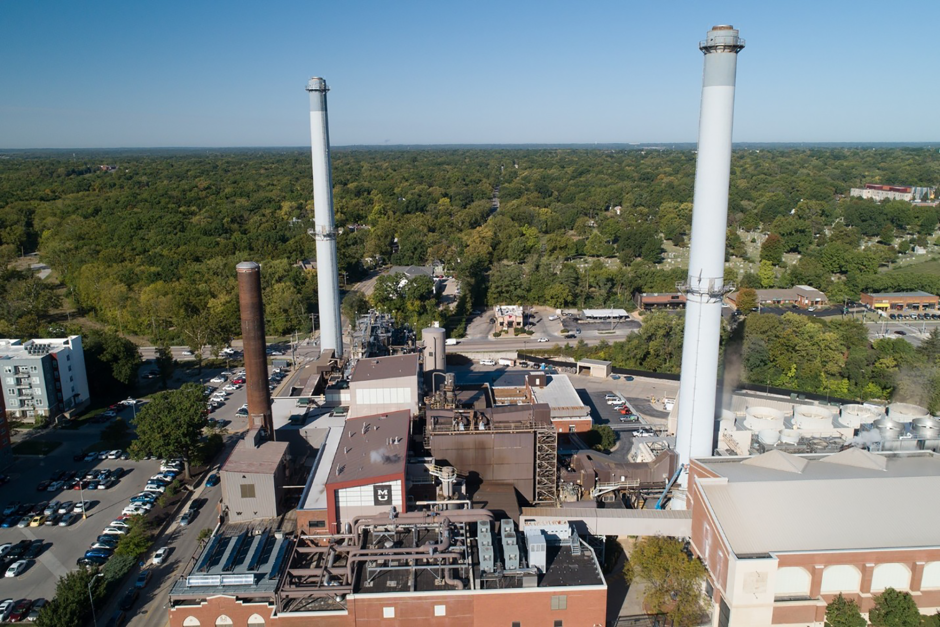
July 28, 2025
Contact: Brian Consiglio, consigliob@missouri.edu
Photo by Vic Smith
University of Missouri researchers are using a type of artificial intelligence to revolutionize how large campuses — including Mizzou’s own — manage energy use. Their goal is to help institutions across the nation optimize efficiency and reduce operational costs while cutting carbon emissions.
In a recently published study, Sanjeev Khanna and Saad Alsamraee, researchers in the College of Engineering, analyzed six years of data collected from Mizzou’s Combined Cooling Heat and Power Plant between 2017 and 2022. The data included campuswide energy usage and environmental variables such as air temperature, humidity, wind speed/direction and solar radiation — all tracked hourly.
Using machine learning, the research team successfully forecasted the campus’s energy demands for 2023 with a remarkable accuracy of 94%.
“By knowing when there are going to be peaks and valleys and how much energy will be needed, even on an hour-by-hour basis, we can ultimately help power plants better plan ahead so they can be as efficient as possible with energy use,” Khanna said. “This research can help universities and industries reduce carbon emissions and save money.”
The ability to predict energy lulls also enables universities to better schedule maintenance breaks with minimal disruption.
While this study focused on Mizzou’s energy data, the findings show that machine learning can help power plants across the country operate more efficiently.
Khanna, a professor of mechanical engineering and the director of the Midwest Industrial Assessment Center, has received continuous support from the U.S. Department of Energy over the past 18 years. His work throughout Missouri has not only helped local industries reduce energy use and carbon output — it has also decreased the state’s electric demand by approximately 300 megawatts and delivered an economic impact exceeding $120 million, while reducing carbon emissions by more than 0.8 million tons annually.
“The collaboration at Mizzou sets us apart from other universities,” Khanna said. “The administration is very supportive of outside-the-box thinking, and working at a land-grant university has allowed our research to help industries all across the state.”
“High-resolution energy consumption forecasting of a university campus power plant based on advanced machine learning techniques” was published in Energy Strategy Reviews.



